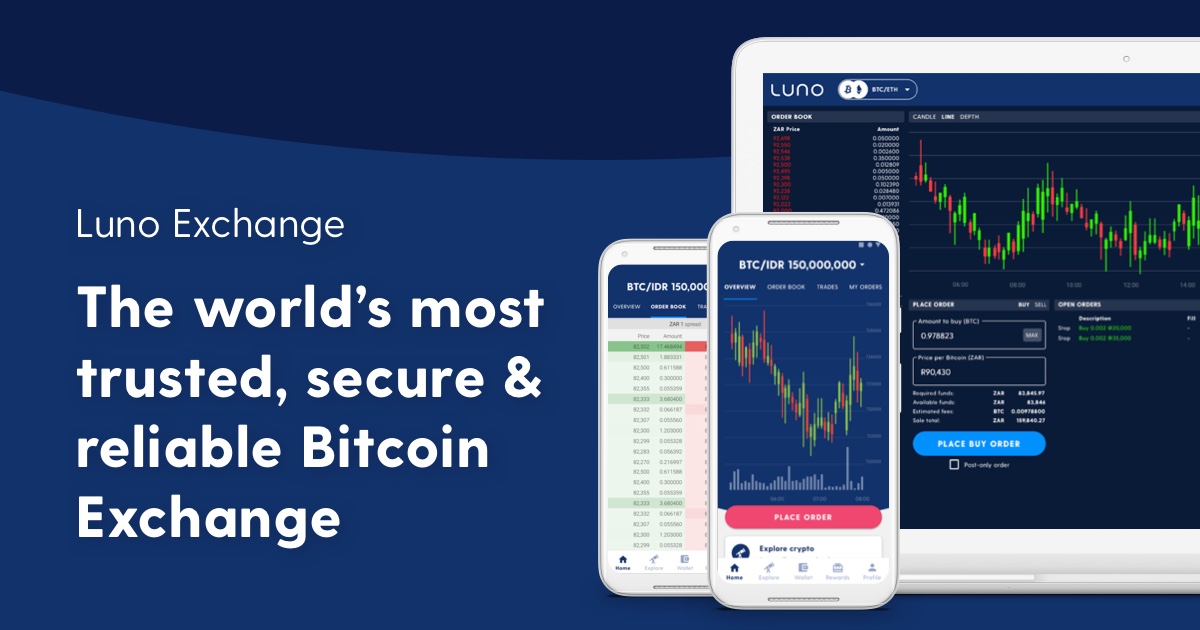Luno users in South Africa have been increasing exponentially, indicating the exchange’s popularity in the country. To learn more about this story and others, keep reading.
Luno Users in SA Increased by Almost 1M in 2020
In 2020, almost one million new South African users registered on Luno. The exchange also processed volumes of over $3 billion in the country that year. In 2021, the exchange has recorded more than 250,000 new users from South Africa.
 According to data from Luno, the average Luno user had more than $7,000 in their wallet on January 25, 2021, a 56 percent increase from December 30, 2020. Moreover, South African crypto investors are relatively young. About 40 percent are 29 years old or below. 65 percent of the users are male while 35 percent are female. “A three-month average reveals that more than 145,000 South Africans installed the Luno app each month from November 2020 – January 2021,” Luno announced recently.
According to data from Luno, the average Luno user had more than $7,000 in their wallet on January 25, 2021, a 56 percent increase from December 30, 2020. Moreover, South African crypto investors are relatively young. About 40 percent are 29 years old or below. 65 percent of the users are male while 35 percent are female. “A three-month average reveals that more than 145,000 South Africans installed the Luno app each month from November 2020 – January 2021,” Luno announced recently.
The exchange notes that it has experienced significant growth since Digital Currency Group (DCG) acquired it in September 2020.
“South Africans are definitely curious about crypto. Google Trends has South Africa as among the highest in the world for interest in #Bitcoin – fourth behind Nigeria, Austria, and Switzerland. Searches for #Bitcoin peaked in the first week of January this year,” said Marius Reitz, the General Manager of Luno Africa. “While regulation generally tends to lag behind innovation, regulators in South Africa have shown a great willingness to engage with the community and work towards pragmatic regulation.”
Luno has more than seven million users in over 40 countries.
Bitcoin Trade Namibia Onboards Over 80 Percent of Orders on LN
In a recent tweet, Bitcoin Trade Namibia has announced that it is delivering more than 80 percent of its orders to and from users via the Lightning Network.
The exchange allows its users to buy and sell bitcoin with Namibian Dollar (NAD) and the South African Rand (ZAR). Also, the crypto exchange does not store bitcoin wallets, addresses, or bitcoin on its servers.
The Lightning Network (LN) is a second layer on top of the Bitcoin blockchain that aims to make transactions instant and cheaper. LN also wants to scale the number of transactions the network can handle to millions and billions per second.
Akon Launches NFT Marketplace
 American-Senegalese singer Akon launched a non-fungible token (NFT) marketplace, AkoinNFT. The marketplace, which aims to empower artists and brands, will be involved in “the creation, design, minting, and distribution of NFTs.”
American-Senegalese singer Akon launched a non-fungible token (NFT) marketplace, AkoinNFT. The marketplace, which aims to empower artists and brands, will be involved in “the creation, design, minting, and distribution of NFTs.”
“We believe in artists of all talents. We support artists for we are artists and there is never been a better time to put the power back in our collective hands to create a greater connection with fans,” said Akon.
AkoinNFT has just released the first crypto art collection in collaboration with WrappedLA and Traveler Music. The pieces were available until 12 PM Pacific Time, April 15, 2021.
Akon has launched the NFT platform at a time when NFTs are booming. Other musicians like Kings of Leon and the Weeknd have also gotten in on the NFT action.
To learn more about Bitcoin, download the Bitcoin Beginner’s Handbook for free.


 Features3 years ago
Features3 years ago
 Bitcoin2 years ago
Bitcoin2 years ago
 Features3 years ago
Features3 years ago
 Features3 years ago
Features3 years ago
 Features3 years ago
Features3 years ago
 Features3 years ago
Features3 years ago
 Features8 months ago
Features8 months ago
 Bitcoin10 months ago
Bitcoin10 months ago

 According to data from Luno, the average Luno user had more than $7,000 in their wallet on January 25, 2021, a 56 percent increase from December 30, 2020. Moreover, South African crypto investors are relatively young. About 40 percent are 29 years old or below. 65 percent of the users are male while 35 percent are female. “A three-month average reveals that more than 145,000 South Africans installed the Luno app each month from November 2020 – January 2021,” Luno announced recently.
According to data from Luno, the average Luno user had more than $7,000 in their wallet on January 25, 2021, a 56 percent increase from December 30, 2020. Moreover, South African crypto investors are relatively young. About 40 percent are 29 years old or below. 65 percent of the users are male while 35 percent are female. “A three-month average reveals that more than 145,000 South Africans installed the Luno app each month from November 2020 – January 2021,” Luno announced recently. American-Senegalese singer Akon launched a non-fungible token (NFT) marketplace,
American-Senegalese singer Akon launched a non-fungible token (NFT) marketplace, 















 Central African Republic (CAR) has set up a 15-member committee that will be responsible for developing a bill on the use of cryptocurrencies and tokenization in the region.
Central African Republic (CAR) has set up a 15-member committee that will be responsible for developing a bill on the use of cryptocurrencies and tokenization in the region.
